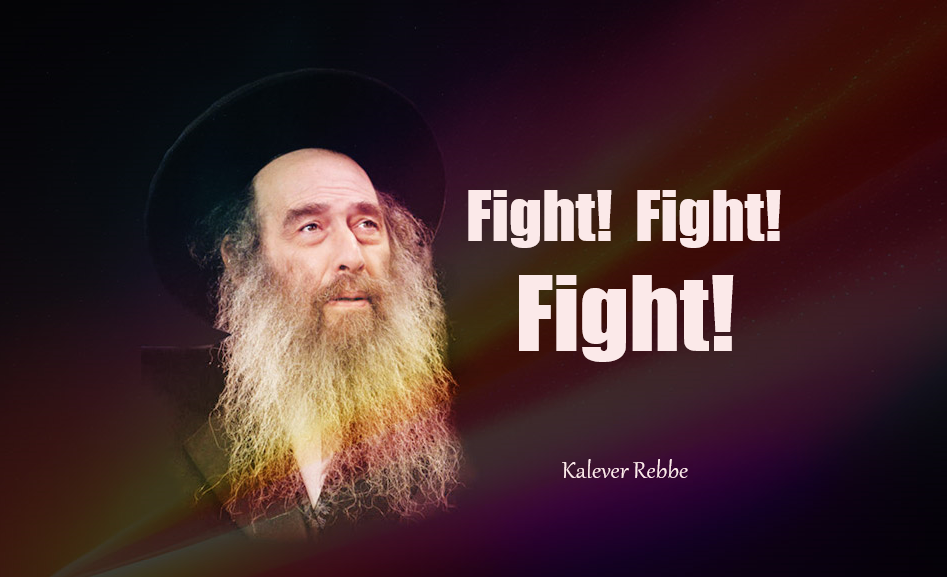
Stop the Sparks
Hashem often shows us someone else's apparent flaw so that we can see it within ourselves and correct it. This requires spiritual elevation, otherwise known as growth…

Let’s face it it’s easier to find fault with others than with ourselves. So what do most of us do? We’re aggravated by the faults we see in others.
Torah teaches that when we notice some flaw in someone else, we have the same fault. Hashem often shows us someone else’s apparent flaw so that we can see it within ourselves and correct it. This requires spiritual elevation, otherwise known as growth. Growth requires tools. These tools will (1) Help us dispel negative emotions towards others; (2) Help us shift from emotionalism to using our minds to self-correct; and (3) Help others to also grow. This is powerful stuff. Why?
Well, as I see it, these tools can stop the sparks from flying. That’s what we need in this world more than ever because sparks that fly cause wildfires—spiritually and physically. I had to evacuate because of the raging fires in California—the home of the motto “Anything Goes”. Thankfully, our community was spared. The solution is to calm down emotionally, take a deep breath, and have as a goal to bolster relationships rather than break them. In two words, we all need to learn “effective communication. We do this when we honor the feelings of others, even those who may rub us the wrong way. We don’t have to like their behavior, but we can honor their souls. We can try to reach out in a positive way. Here’s how:
Step #1 See Hashem: Know that Hashem orchestrates “confrontations” to help both of the parties involved grow. When our outward response is reactive and negative (an expression of rage, frustration,  jealousy), what feeling would help us control our inner negative instinct? The key is to feel embarrassed by our actions, as if our boss caught us in a childish and hurtful act, because, in fact, He did!!! So our job is to regain emotional equilibrium by taking deep breaths and refusing to respond instinctively to emotional triggers until the emotion passes.
jealousy), what feeling would help us control our inner negative instinct? The key is to feel embarrassed by our actions, as if our boss caught us in a childish and hurtful act, because, in fact, He did!!! So our job is to regain emotional equilibrium by taking deep breaths and refusing to respond instinctively to emotional triggers until the emotion passes.
Step #2: Let the Negative Emotion Go: If we are hurt, upset, or angry due to the actions or words of others, honor the emotion to gain clarity on one’s own conduct, the behavior that was offensive to us, and how to compassionately make the other person aware of the effect of what s/he did. We must remember that the emotion is internal and natural but acting upon it is what we must curtail by using our minds properly. Then we can let the emotion go. If that feels impossible, then we wait until we are able to let it go before proceeding to Step 3.
Step #3: Be Sensitive and Compassionate: To help another we look for this same negative behavior in ourselves through introspection. This obligates us to be honest with Hashem and ourselves. By finding the common ground in the negative expression, we remain humble. This helps us have the right head space to be able to use our minds to guide our hearts when we address our concerns with the other person. We must be able to mentally replace any feelings of aggression, finger-pointing, accusation with one emotion—compassion. The desire to remain in the relationship and grow from it must be the goal unless we simply decide to walk away because we do not wish to salvage the relationship. Most of the time, however, it is possible to see the person as separate from the negative behavior. The goal is to learn and to teach, not to condemn and judge. “Sensitive accountability” is an amazing tool for growth.
Step #4: Set up a Time to Talk: Plan out a way to talk about the behavior itself and avoid talking about the other person. We draw the other person in by explaining how we, too, have exhibited this behavior in the past and want to eliminate it as well. This creates a common ground—a teachable experience and connection rather than estrangement. Keep the tone low and the pace slow and steady. Raised voices and excessive speed create tension.
Step #5: Emphasize Connection and Understanding: Because we made known our feelings about a particular issue in a heartfelt way as well as our own struggles with the issue at hand, we have made a connection at the soul level rather than perpetuating a chasm of negative feelings. When we choose to clear the air in an amicable way, we put out fires instead of igniting them. The words we use to express ourselves make all the difference. Fighting fire with fire never works. When we control our emotions, we release the barriers to love and unity, and we stop the sparks from flying.










Tell us what you think!
Thank you for your comment!
It will be published after approval by the Editor.